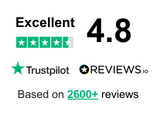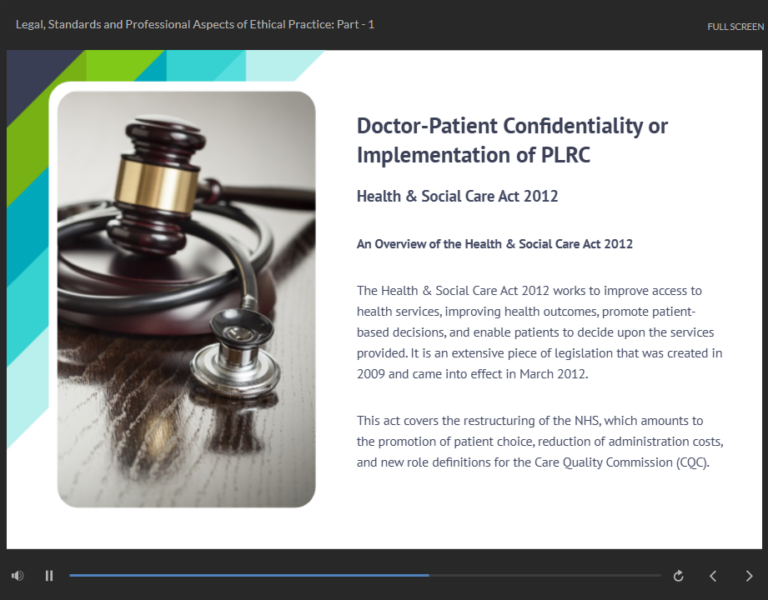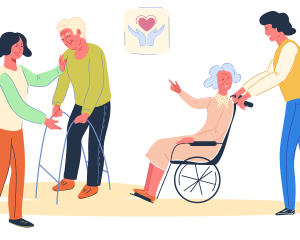GET THIS COURSE AND 1500+ OTHERS FOR ONLY £49 FIND OUT MORE
The world we know today, health and wealth are coined as forever bound yet never meet. To cherish one, often demands to let go of the other one. To create a balanced society, Health and Social Care forged a vast web of societal services where souls meet science. However, the challenges posed by events like the Lansley Act of 2012 and the seismic waves of the 2020 pandemic revealed its vital pulse as never before, creating a pathway for millions of jobs and unprecedented growth in the related field.
As populations age, health’s need grow more complex. From 2002 to 2011, the UK saw its proportion of citizens aged 90 and older leap from 1% to 26%. Meanwhile, long term chronic illness and job limiting disabilities surged, marking a 32% rise since 1991. This isn’t merely a set of statistics but a demand which needs action by professionals who can harmonize the evolving needs of individuals with the systemic demands of care delivery.
The Level 2 Diploma in Health and Social Care is your gateway to understanding essential duties, communication techniques, and safety roles that support people’s lives each day. With this health and social care level 2 online course, your confidence grows as you learn what truly matters in this rewarding sector.
Our health and social diploma level 2 introduces the core values, legal duties, and protective measures needed in modern care environments. You’ll gain the right awareness to serve others while maintaining quality and accountability. Each chapter in this diploma in health and social care is built to strengthen your professional presence.
Designed for flexible learning, the level 2 in health and social care gives you access from anywhere. The training materials of this course are available online for you to learn at your own pace and fast-track your career with ease.
- Extra Included :
- Free Accredited Certificate Included
- Unlimited Free Retake Exams
- Free Course Included : Health and Social Care Diploma Level 2
- Free Course Included : Care Certificate Course - Standards (1 to 15)
Key Features
- Accredited by CPD
- Instant e-certificate and hard copy dispatch by next working day
- Fully online, interactive course with audio voiceover
- Developed by qualified professionals in the field
- Instant Access
- 24/7 Learning Assistance
- Self-paced learning and laptop, tablet, smartphone-friendly
£41,300 Average Salary, Up to £85,500/yr for this skill according to top UK career sites.
“Continuous professional development in health and social care is vital to keep pace with evolving best practices and emerging health challenges.”
— Health Education England (HEE), a public body under the Department of Health and Social Care.
Learning Outcomes
By the end of this online diploma in health and social care training, learners will get the following benefits
- Understand the basic ideas and values of social care.
- Learn how to speak and listen well in a care setting.
- Know the main tasks and duties of a caregiver.
- Gain clear knowledge of key health care laws and rules.
- Learn more about rights, consent, and legal care duties.
- Stay safe at work by learning health and safety steps.
- Build the skills to guide and support a care team.
- Get ready to work with others in a health and social care job.
Who Should Take This Level 2 Diploma in Health and Social Care?
- Beginners who want to start a career in care and support services
- School leavers looking for a clear path into the health sector
- Job seekers aiming to gain a recognised diploma in health and social care
- Adults returning to work who want to build new knowledge
- Carers looking to improve their work with a level 2 health and social care online course
- Those who wish to move on to the health and social care level 3 in the future
- Learners who want to study from home with a health and social care level 2 online option
- Anyone aiming to get a strong start with a health and social diploma level 2
Why Should You Choose Health and Social Care Level 3 Course?
The Level 3 Health and Social Care course is a smart choice if you want to grow in the care field. If you have done the level 2 diploma in health and social care or taken the health and social care level 2 online course, this is your next step. It helps you learn more and build your skills with ease.
You will study topics like social care, clear speaking, care roles, and work safety. You will also learn about care laws and team leadership. Each part is simple, clear, and easy to follow. This keeps learning smooth and stress-free.
So, if you passed the health and social diploma level 2 or want to update your level 2 in health and social care, this course is right for you. The level 2 health and social care online path makes moving forward fast and simple.
-
Operate with a high degree of autonomy
In the UK, health care professionals are entrusted with significant autonomy, operating with minimal oversight while making critical decisions. Their expertise garners respect from the public as well as outside their domain, showcasing a trusted representation of responsibility.
-
Cope up with Code of Ethics
Get addicted to a code of ethics that anchors the integrity of health and social care. These regulated codes ensure people abide by shaped principles within the care field. Ethical lapses are met with accountability measures, reinforcing public trust in their mission.
-
Fostering a Shared Identity
Declare a sense of corporateness across the community of health workers and cultivate a collective identity. These networks encourage collaboration, continuous learning, and a shared dedication to community well-being.
-
Serving Society’s Core Needs
Health and social care services are essential pillars of societal health. From safeguarding vulnerable people to promoting wellness, their contributions are fabricated into a map of a functioning society, ensuring stability and progress for all.
-
A Calling, Not Just a Career
Health care members consider membership in the profession to be a vocation of life-long calling. These professionals dedicate themselves to mastering their craft and contributing to their communities, finding purpose in service.
-
Uphold Excellence standards
The pursuit of excellence drives the sector. Health workers engage in relentless commitment ensures they remain equipped to face evolving challenges to enhance the professional body’s ability to better serve the public.
-
A Profession of Mind, Not Manual Labour
Health and social care roles demand more cognitive than physical. As such, its tasks often have low levels of physical exertion and are typically performed in an office setting.
-
Grant access to the field of work
Health care professions require a formalised training regimen that members must complete in order to gain entry and be allowed to practise.
-
Body of theory
Backbone law and guide in health and social care is backed by a well-established body of theory. Evidence-based practices guide ensure that outcomes are effective, safe, and meet up to individual needs.
-
Recognized Profession of Trust
The UK populace's perception flourishes the health and social care to bloom to its fullest and this can be considered as a confirmation of trust. In health and social care, the combination of community trust and unwavering service shapes an essential sector embodying the finest attributes of professionalism.
Career prospects / job opportunities in the Health and Social care Sector in the UK
The health and social care sector in the UK offers many job options. Whether you’re starting fresh or moving up from a level 2 diploma in health and social care, there are roles to match your goals. This field needs kind, patient people who want to support others in their daily lives. With the right training, you can find stable work and grow in your career.
-
Care Worker
Care workers provide daily support to people who need help due to age, illness, or disability. They may work in care homes or visit clients at home. Their role helps improve comfort, well-being, and independence.
-
Support Worker
Support workers guide people with learning needs, physical issues, or mental health conditions. They assist with tasks like shopping, cooking, and going out. This role builds trust and helps people lead fuller lives.
-
Healthcare Assistant
Healthcare assistants work in hospitals, clinics, or care homes. They support medical staff by checking vital signs, helping with meals, and keeping records. Their care helps patients feel safe and respected.
-
Residential Care Officer
Residential care officers work in group homes for young people or adults. They manage daily routines, offer guidance, and create a safe setting. They also help with school, health, and social needs.
-
Social Work Assistant
Social work assistants support qualified social workers with admin and home visits. They collect details, prepare reports, and follow up on care plans. Their help keeps services running smoothly.
-
Community Care Assistant
Community care assistants visit people in their homes to help them live on their own. Tasks include cooking, cleaning, giving reminders for medicine, and offering friendly support.
-
Rehabilitation Support Worker
These workers help people regain strength and movement after illness or injury. They help with light exercises and daily tasks. They often work with nurses, physios, or occupational therapists.
-
Mental Health Support Worker
They care for people with anxiety, depression, or other mental health conditions. They listen, talk, and guide people through treatment plans. They often work in clinics, homes, or hospitals, providing stable support.
Certification
Once you’ve successfully completed your course, you will immediately be sent a digital certificate. Also, you can have your printed certificate delivered by post (shipping cost £3.99). All of our courses are fully accredited, providing you with up-to-date skills and knowledge and helping you to become more competent and effective in your chosen field. Our certifications have no expiry dates, although we do recommend that you renew them every 12 months.

Accreditation
All of our courses, including this Level 2 Diploma in Health and Social Care Training, are fully accredited, providing you with up-to-date skills and knowledge and helping you to become more competent and effective in your chosen field.
Level 2 Health and Social Care Online Course Duration and Format
The Level 2 Health and Social Care is an online course and designed for efficient learning, with a total duration of 4 hours and 2 minutes. This compact and focused course allows you to complete it at your own pace, offering flexibility to fit into your schedule. Additionally, the course materials are accessible anytime, ensuring a convenient learning experience. As you progress through the course, you’ll cover essential topics related to health and social care, which provide a solid foundation for learners. Moreover, the health and social care level 2 online format caters to your preferred speed of study, making it an ideal choice for those with busy lifestyles. Upon completion, you will receive a diploma in health and social care, enhancing your qualifications and career prospects in the sector.
“Training health and social care workers is a critical investment in strengthening health systems and improving patient outcomes worldwide.”
— World Health Organization, connects nations to improve health and aid the vulnerable.
Course Curriculum for Level 2 Health and Social Care
Our Level 2 in Health and Social Care training offers a solid foundation for those looking to build a career in the health and social care setting. Each module is designed to equip you with essential knowledge and practical skills, ensuring you’re well-prepared for the challenges ahead. The detailed curriculum outline of our Health and Social Care Level 2 is as follows:
Social Care
This chapter introduces the fundamentals of social care, explaining its importance in supporting individuals across different age groups and backgrounds. You’ll learn about the key values of care, including dignity, respect, and empathy, and understand how these principles apply to various care settings.
Communication in Healthcare
- Understand why effective communication is essential in health and social care, fostering as well as shaping better understanding and collaboration for individuals and community fibre.
Roles and Duties of Caregiver
- Explore the vital rights and responsibilities of health and social care workers, promoting and focusing on respect, ethical practices, accountability and professionalism in every aspect of care.
Legal Standards of Healthcare Part – 1
- Discover how caregivers and healthcare professionals support lives daily. Build skills to make an impact in today’s dynamic healthcare environment.
Legal Standards of Healthcare Part – 2
- Explore crucial ways to uphold equality, celebrate diversity, and respect rights in the rewarding field of health and social care.
Health and Safety for Health & Social Care Workers
- Explore essential policies and practices shaping health and social care, equipping professionals to deliver effective and compassionate support.
Leadership for Health & Social Care
- Explore the essentials of ethical practice and professional standards in health care, offering valuable insights into the legal side of quality care.
After completing the course, you will have a clear understanding of the key principles, legal requirements, and leadership skills required in the health and social care sector. With a strong emphasis on foundational knowledge and ethical practices, this Level 2 Diploma in Health and Social Care prepares you for a rewarding career in the industry.
Level 2 Diploma in Health and Social Care Reviews

FAQs About Health and Social Care Level 2
What’s the Level 2 Diploma in Health and Social Care all about?
Imagine a map guiding you into the rewarding world of health and social care. This qualification equips you with foundational skills to support individuals with diverse needs. It’s like a starter kit for making a real difference in people’s lives.
Who is this qualification suitable for?
Do you have a heart full of empathy and a desire to assist others? Whether you’re just starting in the sector or already working and seeking formal recognition, this diploma welcomes you with open arms.
How long does it take to complete?
Think of it as a marathon, not a sprint. Typically, it takes 4 hours and 2 minutes to complete, but the pace is flexible, allowing you to juggle studies alongside work or personal commitments.
What skills will I gain?
This diploma is like a toolbox for caregivers. You’ll learn effective communication, understanding diversity, safeguarding individuals, and person-centred care—essential skills for thriving in health and social care.
Do I need any prior qualifications?
Not at all! This diploma is beginner-friendly. All you need is a commitment to learning and a passion for supporting others.
How is the course assessed?
Forget about traditional exams; this diploma uses a practical approach. You’ll compile a portfolio of evidence through on-the-job assessments, observations, and reflective practice. It’s all about proving your skills in real-world settings.
What jobs can I pursue with this qualification?
Think of it as a key unlocking entry-level roles such as healthcare assistant, support worker, or domiciliary care worker. It also lays a foundation for further studies if you dream of climbing higher.
Can I study this diploma online?
Absolutely! Many providers offer flexible online or blended learning options, allowing you to tailor your studies around your schedule. It’s learning at your convenience!
Will I be buried in textbooks, or is the learning hands-on?
It’s a beautiful blend of theory and practice. You’ll tackle real-world scenarios, learn through practical experience in care settings, and explore units like safeguarding, communication, and health promotion.
How does this qualification benefit my career?
This diploma is your ticket to entering a high-demand sector with endless opportunities. It not only boosts your employability but also shows employers your commitment to professional development and compassionate care.
What is a Level 2 qualification?
A Level 2 qualification is an educational credential equivalent to GCSE grades 4-9 (formerly A*-C) in the UK, typically achieved by students aged 14-16. It demonstrates foundational knowledge and skills in subjects like math, English, or vocational areas such as health and social care. Examples include GCSEs, NVQ Level 2, or BTEC First Diplomas. Ideal for entering further education, apprenticeships, or entry-level jobs, it’s a stepping stone to Level 3 qualifications like A-Levels. Recognized by employers and colleges, Level 2 courses build confidence and practical abilities, often tailored to specific careers. Unlike competitors’ vague definitions, this clear explanation highlights its purpose, equivalents, and career benefits, ensuring you understand its value in education and work.
Why is CPD important in health and social care?
Continuing Professional Development (CPD) is vital in health and social care because it ensures professionals stay up-to-date with the latest knowledge, skills, and best practices. In a field where new research, technologies, and regulations emerge regularly, CPD helps you deliver safe, effective, and person-centered care. It also boosts your confidence, enhances career prospects, and demonstrates your commitment to maintaining high standards. By engaging in CPD, you’re better equipped to meet the evolving needs of those you support, ultimately improving outcomes for individuals and communities. Plus, with our CPD-accredited course, you can trust that your learning meets recognized professional standards!
What jobs can you do with a Health and Social Care Level 2 online course?
What is voluntary care in health and social care?
Voluntary care refers to unpaid support provided by volunteers in health and social care settings to improve patient well-being. Unlike professional care, it’s driven by compassion, not obligation, and includes activities like companionship, emotional support, or assisting with daily tasks. Volunteers, often trained by charities or organizations, work in hospitals, care homes, or communities, complementing professional services. This care fosters social connections, reduces isolation, and improves mental health for vulnerable groups like the elderly or disabled. It’s distinct from informal care (by family) as it’s organized and regulated. By offering personalized, empathetic support, voluntary care fills gaps in stretched systems, making it invaluable. Always ensure volunteers are vetted and trained for safety and quality.
Why are communication skills so crucial in health and social care?
Communication skills are vital in health and social care for several reasons. First, they help patients understand their health and treatment options, empowering informed decisions. Moreover, clear communication builds trust, making people feel heard and respected, which encourages cooperation. Additionally, it enhances safety by preventing misunderstandings that could lead to errors, like incorrect treatments. Furthermore, empathetic communication offers emotional support, comforting those in distress. Also, it ensures teamwork among care providers, aligning efforts for better care. Finally, effective communication respects diverse backgrounds, ensuring fair treatment. Thus, strong communication is the foundation of safe, compassionate, and high-quality care.
What is respect in health and social care?
Respect in health and social care means valuing individuals’ dignity, autonomy, and unique needs. It involves treating patients and clients with kindness, listening to their concerns, and honoring their choices, regardless of background or condition. Respect includes maintaining privacy, ensuring confidentiality, and providing compassionate, person-centered care. For example, a caregiver might ask for consent before assisting with personal tasks or use a patient’s preferred name. It fosters trust, improves outcomes, and upholds human rights. Unlike general politeness, respect in this context is a professional duty, guided by principles like those in the Care Act 2014 or NHS values. By prioritizing respect, health and social care professionals create safe, inclusive environments where everyone feels valued.
What is a barrier in health and social care?
In health and social care, a barrier is anything that hinders access to quality care or support. These can include physical barriers (e.g., lack of wheelchair ramps), financial barriers (e.g., high treatment costs), communication barriers (e.g., language differences), or social barriers (e.g., stigma around mental health). Other examples are geographical isolation, limited healthcare staff, or cultural misunderstandings. Overcoming barriers involves tailored solutions like providing interpreters, subsidizing costs, or improving infrastructure. By addressing these obstacles, healthcare systems ensure equitable access for all, enhancing patient outcomes and community well-being. Understanding and tackling barriers is crucial for inclusive care delivery.
What is an Extended Diploma in Health and Social Care?
An Extended Diploma in Health and Social Care is a Level 3 vocational qualification designed for those passionate about careers in healthcare, social work, or community services. Equivalent to three A-Levels, it blends theoretical learning with practical skills, covering topics like human development, safeguarding, and health promotion. Offered in the UK, it’s ideal for students aiming for university degrees in nursing, social work, or allied health professions, or direct entry into roles like care assistants. The course, typically two years, includes work placements to build real-world experience, ensuring graduates are job-ready. Unlike competitors, this diploma emphasizes hands-on training and diverse career pathways, making it a top choice for aspiring health and social care professionals.
What does diversity mean in health and social care?
Diversity in health and social care refers to recognizing and valuing differences in individuals, including their ethnicity, gender, age, disability, religion, sexual orientation, and socioeconomic background. It means providing equitable, person-centered care that respects unique needs and cultural identities. By embracing diversity, healthcare professionals ensure inclusive environments, improve patient trust, and enhance care outcomes. For example, offering language interpreters or culturally sensitive mental health support fosters accessibility. Unlike generic care models, diversity-focused approaches address disparities, reduce biases, and promote fairness. Training staff in cultural competence and tailoring services to individual preferences are key. This holistic understanding ensures everyone feels valued and heard, setting a higher standard for compassionate care.
What are examples of diversity in health and social care?
Diversity in health and social care encompasses differences in ethnicity, gender, age, disability, religion, and sexual orientation. Examples include tailoring care plans for cultural dietary needs, like halal or vegetarian meals in hospitals; providing sign language interpreters for deaf patients; offering gender-neutral facilities for transgender individuals; and training staff to respect religious practices, such as prayer times. It also involves addressing language barriers with multilingual resources or translators to ensure clear communication. By embracing diversity, providers deliver equitable, person-centered care, improving patient outcomes and trust. For instance, dementia care might incorporate culturally familiar music or activities to engage diverse patients. These practices ensure inclusivity, meet unique needs, and comply with equality laws, setting a standard for compassionate care.
What are values in health and social care?
Values in health and social care are core principles guiding compassionate, ethical practice. They include respect for individuals’ dignity, compassion in providing kind, empathetic support, and equality to ensure fair treatment for all, regardless of background. Integrity drives honest, trustworthy care, while person-centered care prioritizes individual needs and preferences. Accountability ensures professionals take responsibility for their actions, and collaboration fosters teamwork for holistic support. These values, rooted in frameworks like the UK’s Care Act 2014, shape high-quality care, build trust, and promote well-being. Unlike generic definitions, this reflects real-world application, ensuring caregivers empower service users effectively.

SAVE 84% - OFFER ENDS SOON
£125.00Original price was: £125.00.£20.00Current price is: £20.00. ex Vat- 1 year
- Intermediate
- Course Certificate
- 4 hours, 2 minutes Gift this course
Subscribe to this course and 2,000+ top‑rated Training Express courses for your organization.
Try Training Express Business- For teams of 5 or more users
- 2,000+ fresh & in-demand courses
- Learning Engagement tools
- SSO and LMS Integrations
 Food Hygiene
Food Hygiene Health & Safety
Health & Safety Safeguarding
Safeguarding First Aid
First Aid Business Skills
Business Skills Personal Development
Personal Development








